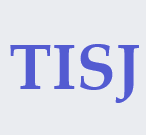Assessing the Reliability of Google Scholar in Predicting Scopus Citation Metrics
| Published |
| January 2, 2025 |
| Title |
| Cardiovascular Aging: a Pathologist overview |
| Authors |
| Giuseppe Lippi. |
| DOI |
| 10.62684/HCDR6921 |
| Keywords |
| Scientific publishing; H-index; Publications. |
| Downloads |
Section of Clinical Biochemistry, University of Verona, Verona, Italy. giuseppe.lippi@univr.it
Abstract
This study analyzed the relationship between bibliometric metrics—specifically the H-index and citation counts—obtained from Google Scholar and Scopus, two widely used databases for assessing research impact. The analysis was based on data from 30 academics affiliated with the University of Verona. Strong correlations within each database were observed, demonstrating that both consistently capture similar patterns of scientific impact. The high degree of concordance between Google Scholar and Scopus metrics also indicates that they provide comparable rankings and relative measures of academic performance, despite differences in absolute values. On average, citation counts from Scopus were 33.8% lower than those from Google Scholar, while H-index values from Scopus were 16.8% lower. These findings highlight the critical importance of database selection in research evaluations, advocating the use of complementary metrics derived from multiple databases to achieve a balanced and comprehensive assessment of scientific impact, while also accounting for the unique strengths and limitations of each bibliometric source.
Declarations
Conflict of Interest
The Author declares that there is no conflict of interest.
References
- Lippi, G., & Borghi L. (2014) A short story on how the H-index may change the fate of scientists and scientific publishing. Clinical Chemistry and Laboratory Medicine, 52(2), e1-e3.
- Lippi, G., &Mattiuzzi C. (2013) The challenges of evaluating scientists by H-index and citations in different biomedical research platforms. Clinica Chimica Acta, 421, 57-58.
- Patel, V.M., Ashrafian, H., Almoudaris, A., Makanjuola, J., Bucciarelli-Ducci, C., Darzi, A., & Athanasiou T. (2013) Measuring academic performance for healthcare researchers with the H index: which search tool should be used? Medical Principles and Practice, 22(2), 178-183.
- Minasny, B., Hartemink, A.E., McBratney, A., & Jang H.J. (2013) Citations and the h index of soil researchers and journals in the Web of Science, Scopus, and Google Scholar. Peer Journal, 1:e183.
- Anker, M.S., Hadzibegovic, S., Lena, A., & Haverkamp W. (2019) The difference in referencing in Web of Science, Scopus, and Google Scholar. ESC Heart Failure, 6(6), 1291-1312.

